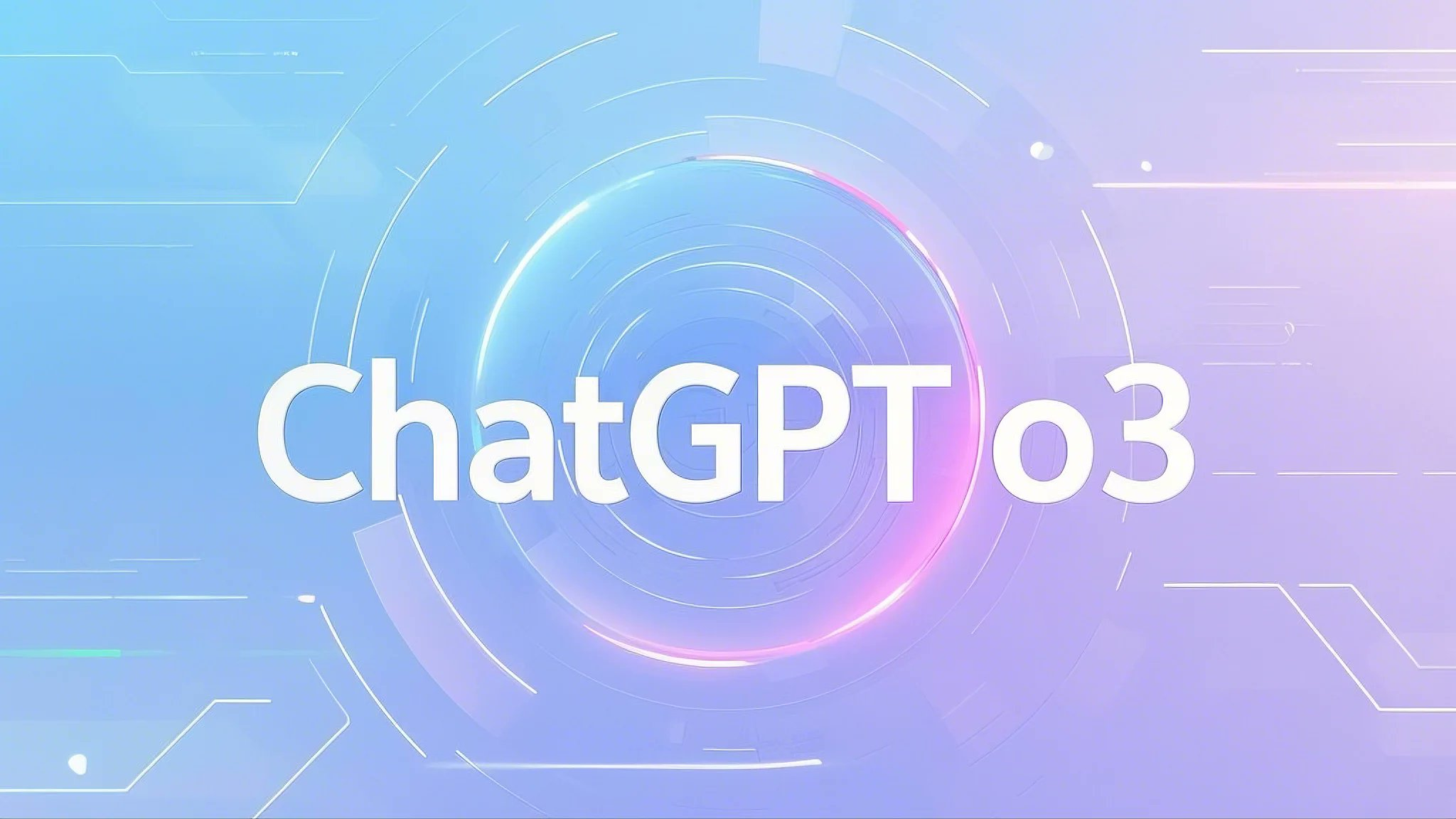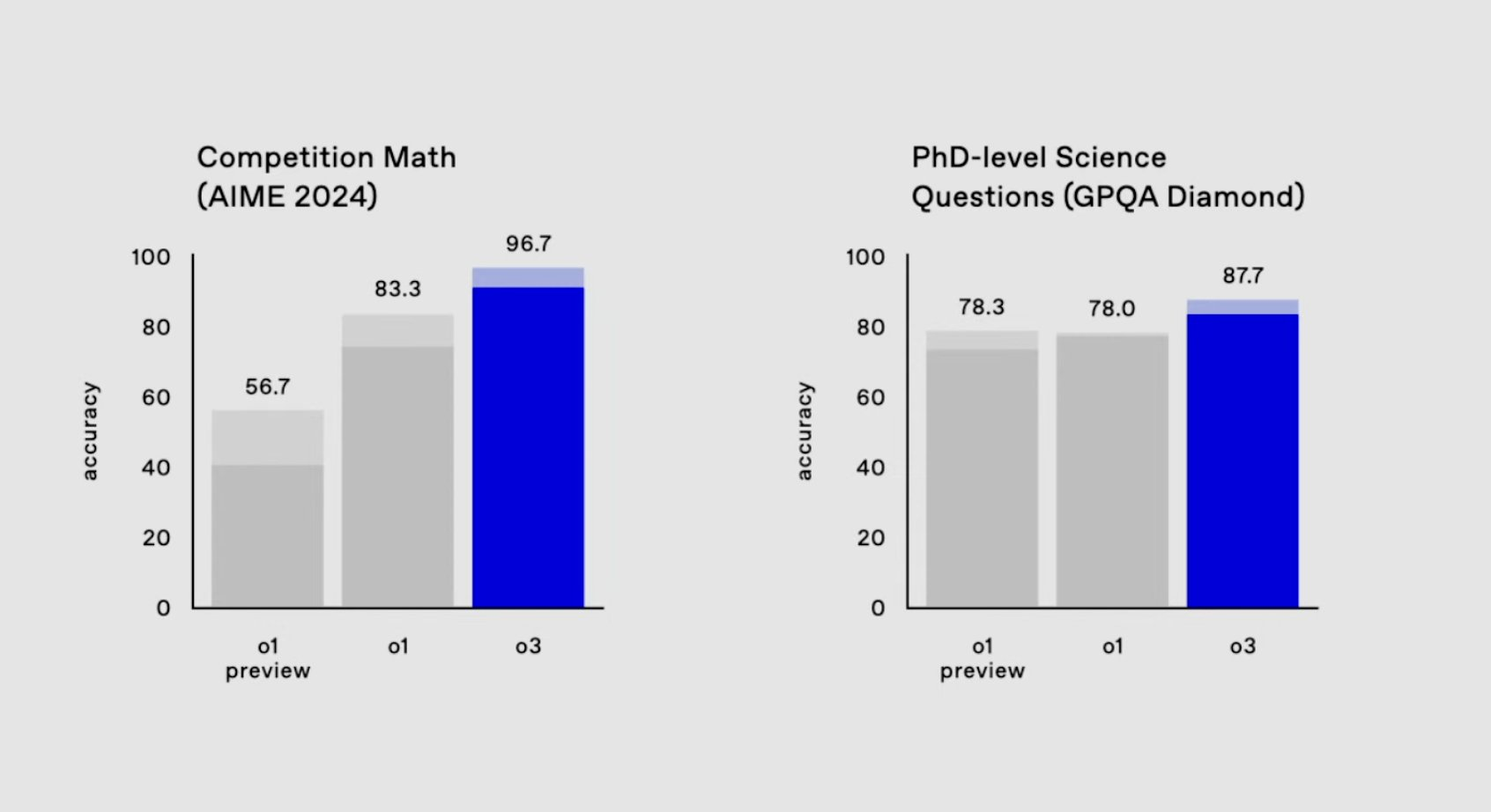Sources and context based on publicly available information as of early 2024

Where We Started
Just a few years ago, AI could do simple things like basic math and writing short texts. Think of it like a smart high school student - helpful, but limited. Then came bigger improvements with models like GPT-4, which could think more like a college graduate.
Reference: OpenAI released GPT-4 in March 2023, setting a new benchmark for AI capabilities¹.
The Big Jump
Now, O3 represents something much more exciting. Imagine going from having an assistant who can help with homework to having a brilliant professor who can solve complex problems. This jump happened in just two months - much faster than anyone expected.
Reference: Anthropic released Claude 3 (O3) in March 2024, demonstrating significant improvements in reasoning and problem-solving capabilities².
What Makes O3 Special
The key thing about O3 is how it thinks. It's especially good at tasks where there are clear right and wrong answers. For example:
- Solving difficult math problems
- Writing computer code
- Understanding complex documents
- Making logical decisions

Reference: According to Sam Altman, CEO of OpenAI, test-time scaling graphs showed dramatic improvements in AI capabilities, particularly in areas with clear evaluation metrics³.
Current Limitations
O3 still has areas where it needs to improve. It's like having a genius mathematician who might struggle to write poetry or understand emotions. Creative tasks and things requiring human-like understanding are still challenging.
Reference: Research from various AI labs indicates that creative and emotional intelligence remain more challenging for AI systems to master⁴.
What's Coming Next
The future looks exciting. In the next few years, we might see:
- AI that can control computers on its own to help with daily tasks
- Programs that can write complex software
- AI that helps scientists make new discoveries
- Systems that can learn from their mistakes and get better over time
Reference: Industry projections and roadmaps from major AI companies suggest these developments are likely within the next 1-3 years⁵.
Why This Matters
This progress is important because it could help solve big problems:
- Making new medicines faster
- Finding better ways to produce clean energy
- Helping students learn more effectively
- Making scientific discoveries that humans might miss
Reference: The potential applications of advanced AI in science and medicine have been documented in numerous research papers and industry reports⁶.
The Bigger Picture
We're moving toward what experts call AGI (Artificial General Intelligence) - AI that can think as broadly as humans do. O3 is a big step in that direction, but we're not there yet.
Reference: This aligns with public statements from major AI research organizations about their progress toward AGI⁷.
Looking Forward
The next few years will be exciting. O3 shows us that AI is advancing faster than we expected. While this brings challenges, it also brings hope for solving problems that have troubled humanity for centuries.
Key References:
¹ OpenAI. (2023). GPT-4 Technical Report.
² Anthropic. (2024). Claude 3 Release Announcement.
³ Altman, S. (2024). Public statements on AI progress and scaling.
⁴ Various AI Research Papers (2023-2024) on AI limitations in creative tasks.
⁵ Industry Forecasts and Roadmaps from leading AI companies (2024).
⁶ Scientific journals and research papers on AI applications in science and medicine (2023-2024).
⁷ Public statements and research papers from major AI labs on AGI development (2023-2024).
Note: As AI development is rapidly evolving, readers are encouraged to check the latest sources for the most current information.
This article summarizes complex developments in AI while maintaining accessibility. For the most up-to-date information, readers should consult official announcements from AI research organizations and academic publications.

Posted Using InLeo Alpha